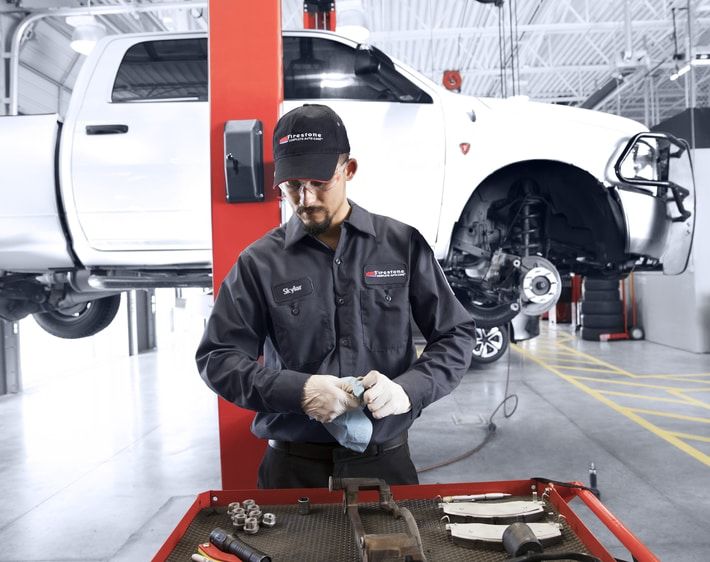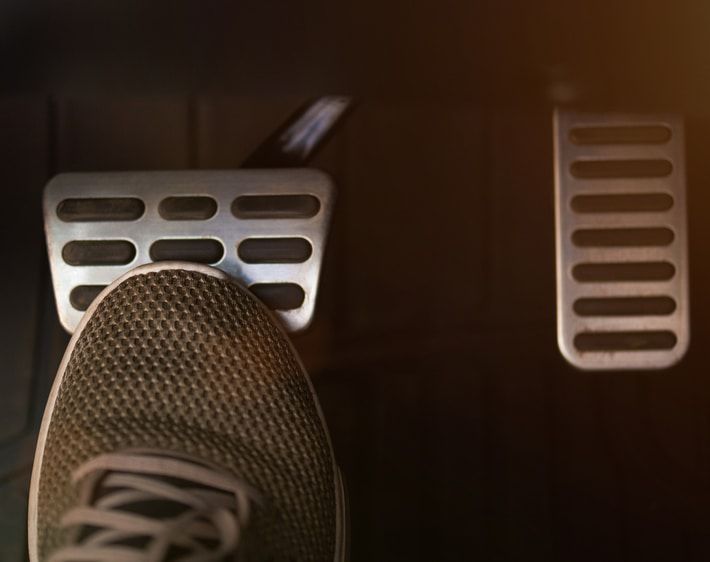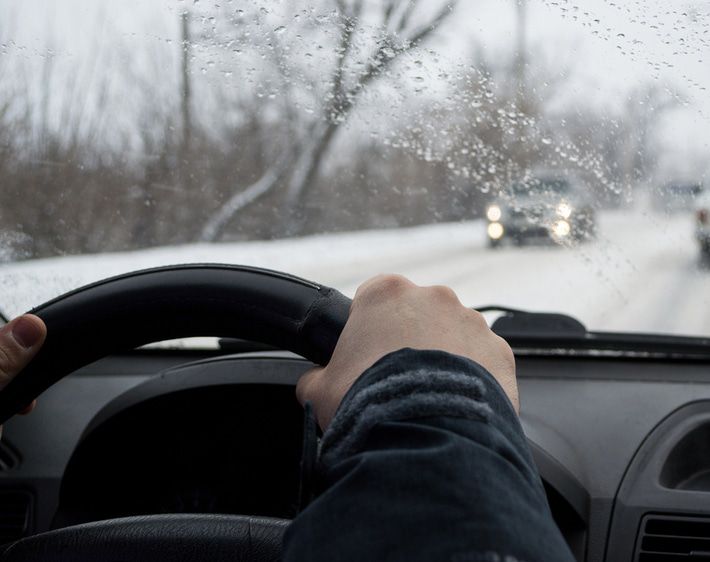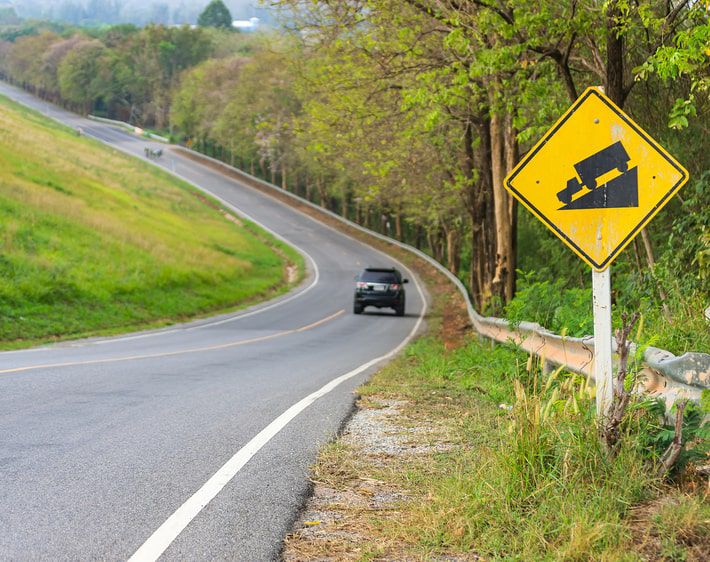From motor oil to wiper fluid, your car is filled with all types of helpful liquids. Brake fluid is one of them, though it's less understood. In fact, the National Institute for Automotive Service Excellence writes that brake fluid is "probably the most ignored fluid in the car — and the most important!" Here, we explain what brake fluid does, why it's essential, and what happens when brake fluid gets low or leaks.
What does brake fluid do?
Brake fluid is a hydraulic fluid that does three important things. First, it helps move different parts of your braking system so that when you press the brake pedal, your vehicle slows down or comes to a complete stop.
How can a simple fluid help bring a 2,000+ pound vehicle to a halt?! It starts with you! Brake fluid is stored inside the master cylinder (a fancy word for a place that holds brake fluid). When you push the brake pedal, the master cylinder sends brake fluid through the brake lines to the brake calipers.
The calipers squeeze your brake pads against the rotors, and the rotors apply friction to the wheels causing them to slow down. Depending on how long and hard you press the brake pedal, the pressure will slow your car or bring it to a complete stop. Thanks to brake fluid, a little push goes a very long way.
But your brake fluid's job isn't done yet! Brake fluid also lubricates all of the moving parts inside the system and protects against rust and other types of corrosion.
Does brake fluid need to be changed?
Over time, the fluid's protective capabilities can fade, which means your brake system stops getting the protection it needs. That's one reason every visit to Firestone Complete Auto Care includes a strip dip brake fluid test. The test indicates whether or not your brake fluid is still properly protecting the system. If it's not, your technician may recommend a brake fluid exchange.
Why does brake fluid leak?
You might be looking at a brake fluid leak if you notice a light yellow or brownish fluid under your car that's slippery to the touch. You might feel the beginnings of a brake fluid leak if you notice a loss of brake pressure. Some drivers say it feels like they're pushing on a "soft" or "spongy" brake pedal.
How can you spring a brake fluid leak? Brake fluid operates in a closed system made of all sorts of parts, including brake switches, pistons, lines, links, hoses, and cylinders. Some parts — like the brake lines — stay put, meaning they don't move when you drive. Other parts — like the pistons — are constantly in motion.
Damage to any one of these parts could lead to a brake fluid leak, writes Wagner Brake.
For example, vehicles can have both steel and rubber brake lines. Over time, steel rusts and rubber degrades – two wear factors that can lead to holes or cracks in brake lines.
Worn brake pads are another common culprit for brake fluid leaks. "If pads or shoes and their respective counterpart rotors and drums become worn," explains Wagner Brake, "the pistons that operate the pads or shoes can become hyperextended, breaking the cylinder seals and weeping fluid to the affected area."
What happens when brake fluid is low
Any leaks or issues with your brake fluid can lead to a low fluid level. When the brake fluid is low, you'll likely notice:
- Illuminated brake light on your dashboard
- Reduced ability to stop
- Brake pads wearing faster than normal
Follow these three-step instructions to check your brake fluid at home, or visit your local Firestone Complete Auto Care for a free brake check. Because brake fluid works within a closed system, low brake fluid levels are typically an indicator you need a brake system inspection immediately. If you notice any symptoms of low brake fluid, point your dash toward Firestone Complete Auto Care for a brake inspection, brake fluid exchange, and brake repairs. Our crew is here for you!



